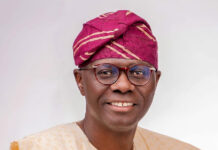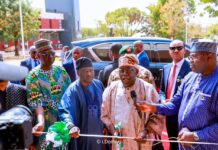 The Lagos State Government (LASG) on Thursday clarified the controversy surrounding the collection of all water abstraction related revenues, saying that at no time did it authorize any consultant to collect such revenues on its behalf.
The Lagos State Government (LASG) on Thursday clarified the controversy surrounding the collection of all water abstraction related revenues, saying that at no time did it authorize any consultant to collect such revenues on its behalf.
The Concerned Members of Association of Water Producers of Lagos State had on Monday published a petition in a national daily on Monday, December 5, 2016 alleging harassment, intimidation, financial deprivation, among others by the State Water Regulatory Commission and the Association of Table Water producers of Lagos State, calling on the Governor Akinwunmi Ambode to look into the matter.
But the State’s Commissioner for Information and Strategy, Mr. Steve Ayorinde in a statement, said investigation into the petition revealed that some commercial/industrial consumers of Lagos State’s water resources under the aegis of the Lagos State Chapter of the Association of Table Water Producers of Nigeria (ATWAP), have been making payments due in respect of fees chargeable on their water production/packaging operations into a bank account not authorized by the State Government.
The Commissioner said that however well-intentioned the Association’s recourse to the use of a Consultant in facilitating the payment of government revenue by its members might be, it remained a procedural error, which according to him must be discontinued with immediate effect.
He said, “Consequently, it has become imperative for LASG to clarify that it has not appointed any Consultant to collect revenues on its behalf. Therefore, all water abstraction related revenues should be paid by individual water service providers into the Treasury Single Account (TSA) with the following relevant codes: Ministry/Agency Code: 4360013; Licensing Fee: 4030022; Permits: 4030023; Regulatory Charges: 4020173 (5% Water Consumption Surcharge).
“Members of ATWAP and the general public should be apprised of the best wishes and intention of the Governor to continually serve the good people of Lagos State with the highest quality of human, infrastructural, and social capital development in an atmosphere of transparency and accountability”.





